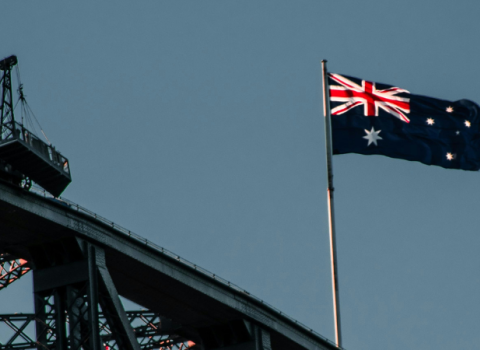Judith Collins says Wellington needs to rebalance its research partnerships away from countries that ‘steal’ science and technology

New Zealand science minister Judith Collins. Photo credits: nznationalparty / Flickr
New Zealand is on course to associate to Horizon Europe’s successor in 2028, science minister Judith Collins has said, as she tries to reorientate the country’s partnerships towards states that respect intellectual property laws.
Asked by Science|Business whether New Zealand would join framework programme 10 (FP10), she said, “I would have thought so […] we’re trying to be much more outward looking around science and tech.”
During a tour of Europe last week, Collins said, “If it’s in our best interest, we’ll do it.” Collins, also the country’s defence minister, took over the science brief last October after her centre-right National party ousted the incumbent Labour party.
In December 2022, New Zealand became the first country outside the European region to agree an association deal to Horizon Europe, following a push by the European Commission to open it up to distant, democratic countries. Canada and South Korea have since also signed deals to join.
Yet there’s no certainty that these countries will also join FP10 when it starts in 2028. Levels of collaboration might falter, geopolitical strategies change, or budgets become strained.
But right now, New Zealand’s association seems to be going well, said Collins. “So far we’re very happy with our association to Horizon Europe,” she said. “Our success rates have been good so far.”
Last October, the country said it had won four bids, outperforming expectations, although raising questions about how it could control its financial contribution to the programme.
Collins’ backing for the programme is significant, as the deal was negotiated under the previous Labour government. Last year in opposition, she called for more details of the agreement after it was announced.
But her enthusiasm for the programme suggests cross-party support in New Zealand. Although she didn’t mention China explicitly, Collins said the country needed to work more with partners that respect copyright and intellectual property.
“These are important issues for us. There’s no point us producing technology or science that’s then stolen by another country,” she said. It’s particularly hard for small countries like New Zealand to defend their citizens against IP theft, Collins added.
As the country looks to make its economy more knowledge based, “you need to be able to keep that IP, otherwise you’re just giving it away,” she said. “We need to make some money.”
Another reason for her support is the lingering impact of the pandemic on the country’s scientists, who were shut off from the rest of the world for several years.
“We were locked away,” she said. “We’re just feeling that we really do need to be out there a lot more.”
Collins also played down any concerns over a lack of say over the programme’s governance. The influx of associated countries, which post-Brexit also includes the UK, has raised questions over whether they should be given the same voting rights as EU members states, which can exclude associated countries from sensitive research calls.
“I’m not really that worried about the governance part,” she said. “We’re a small player, it’s nice to be involved.”
Collins said she had been talking to Switzerland – a longstanding associated member – over how it navigated association.
Health, biosecurity, agriculture, cultural heritage, environmental science and climate change are on New Zealand’s wish list for priorities in FP10, Collins said. “These are all issues that are really important to us.”
Technology partnership
Horizon Europe is not the only technology partnership that Wellington is currently weighing up, however. The country is currently embroiled in a noisy debate over whether to join the security technology-sharing part of AUKUS, a defence pact inked by the US, UK and Australia in 2021 to counter Chinese power in the Indo-Pacific.
Last month, AUKUS members invited Japan to collaborate in this so-called pillar II of AUKUS, although there aren’t any details yet of what this will involve. Yesterday, ministers confirmed that South Korea is also in talks to participate.
New Zealand and Canada are also in the frame to join certain projects, the UK defence secretary Grant Shapps confirmed in February.
The risk for Brussels is that if AUKUS smooths technology sharing between these countries, it could make the EU a comparatively less attractive partner for dual use projects. The US, UK and Australia are altering their export laws to allow more trade in military technology.
Asked whether New Zealand would collaborate with AUKUS, Collins pointed to the fact that the country is part of the Five Eyes agreement, an intelligence sharing network, made up of AUKUS countries, plus Canada.
“That is a very, very longstanding relationship which is extremely important,” she said. “It’s something that I know that the other nations wish that they were part of, but they’re not.”
But Wellington is still scoping out what collaboration with AUKUS would mean in practice.
“We’re still not fully aware of what pillar II involves,” she said, and was in “constant contact” with AUKUS partners to see what it would actually entail.
The country is mulling over “what we can contribute and what it would cost us, and what the other options might be,” she said.
“We’re not champing at the bit, we just want to know more,” Collins added.





 A unique international forum for public research organisations and companies to connect their external engagement with strategic interests around their R&D system.
A unique international forum for public research organisations and companies to connect their external engagement with strategic interests around their R&D system.